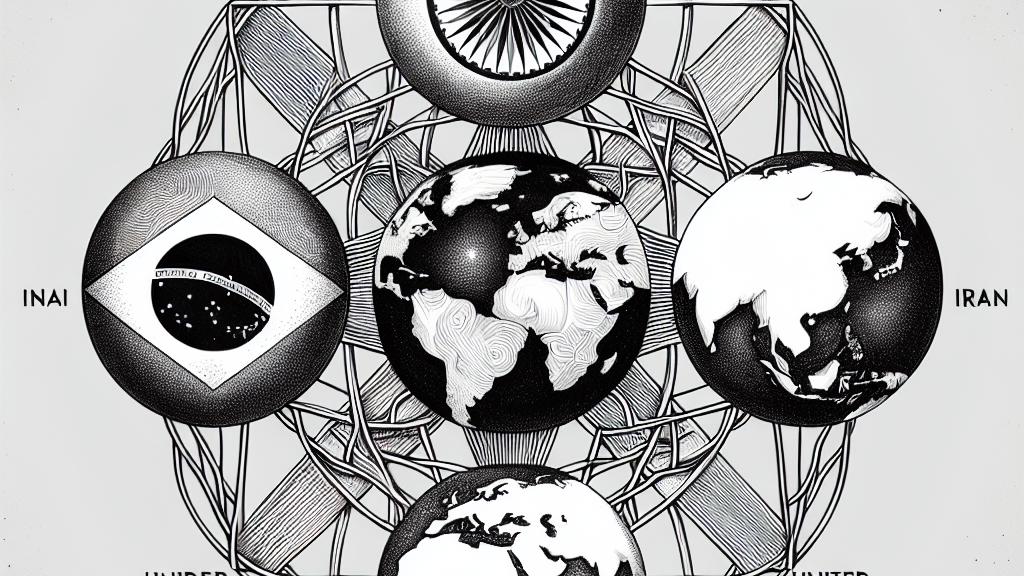The Emergence of Brics: A Challenge to Western Dominance
Overview
- Brics signifies a transformative approach, offering alternatives to traditional Western-led institutions.
- The bloc's expansion with new members enhances its economic clout and global presence.
- A shifting multipolar world order is actively reshaping international dynamics, inviting fresh perspectives.

Understanding Brics
Brics started as a powerful alliance of five major emerging economies: Brazil, Russia, India, China, and South Africa. Recently, it has broadened its horizons by incorporating Egypt, Ethiopia, Iran, and the United Arab Emirates, reflecting a conscious effort to establish a stronger global presence. This strategic expansion elevates Brics' membership to eleven nations, positioning it as a formidable force in international affairs. With an impressive 46.5% of the world's population now represented, alongside about 30% of global GDP, this coalition is not just about numbers; it embodies the aspirations of nations craving a more equitable representation in global discussions.
Global Influence and Power Dynamics
The allure of Brics lies primarily in its vision for economic independence from Western-dominated financial systems. The interest from countries like Argentina and even Saudi Arabia underscores a broader trend of nations seeking collaboration and solidarity within this bloc. Notably, analysts argue that instead of trying to sway nations away from joining, Western nations should genuinely address the valid concerns that drive these countries toward Brics. For example, many developing countries feel underrepresented in institutions like the International Monetary Fund, which historically favor the interests of Western powers. This is why Brics has emerged as an essential alternative, reflecting a collective stance that champions economic and political self-determination, as seen in its projects funded by the New Development Bank.
The Significance of a Multipolar World
Shifting towards a multipolar world is not simply a reaction to contemporary challenges; it signifies a substantial reconfiguration of global power dynamics. Leaders from various nations, including key U.S. allies, are increasingly advocating for a distribution of power that deviates from a unipolar structure. Influential figures, such as former German Chancellor Gerhard Schröder, have warned against the dangers of unilateralism and called for a balanced approach that includes multiple centers of power. Therefore, to remain relevant, the U.S. must adapt to this emerging reality. It should recognize that Brics is not merely an economic challenge but also a groundbreaking ideological shift championing fairness and inclusivity in world governance. Engaging with this transformation can open pathways for collaboration, ultimately fostering stability and progress in global relations.

Loading...